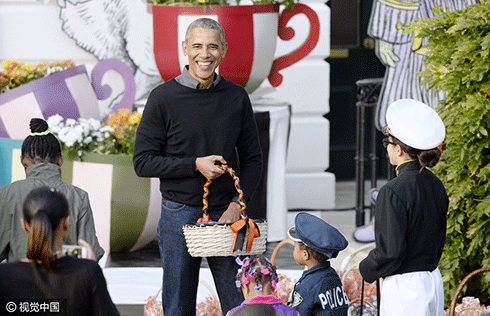Hagel supports US pivot toward Asia-Pacific
Chuck Hagel, US President Barack Obama's nominee for secretary of defense, was grilled at his confirmation hearing on Thursday over controversial remarks he has made in the past.
Challenged by the Senate Armed Services Committee on his comments on Israel, Iran, nuclear weapons and defense cuts, Hagel said he was proud of his record.
"No one individual vote, quote, or statement defines me, my beliefs or my record. My overall worldview has never changed," said the former two-term Republican senator from Nebraska.
If confirmed, Hagel will succeed Leon Panetta and become the first Vietnam War veteran to hold the office.
Li Haidong, a professor at the Institute of International Relations at China Foreign Affairs University, said Hagel is likely to be confirmed because he shares much of Obama's political philosophy.
During the hearing, Hagel said America must maintain the strongest military in the world.
"We must lead the international community to confront threats and challenges together, and we must use all tools of American power to protect our citizens and our interests," Hagel said. "America must engage — not retreat — in the world."
Observers say Obama's positions on national security issues, including the Pentagon's rebalancing strategy in the Asia-Pacific, are unlikely to change in his second term.
"Although domestic affairs and turmoil in the Middle East distract much of Washington's attention currently, the Asia-Pacific area is where America's strategy focus lies," said Ni Feng, researcher of American Studies at the Chinese Academy of Social Sciences.
The US is in the midst of modernizing its defense strategy across the Asia-Pacific to defend and deepen partnerships with traditional allies such as Japan, the Republic of Korea and Australia, Hagel said, adding that provocations from states such as the Democratic People's Republic of Korea and non-state actors will continue to be deterred.
Hagel's statements resonate with US Pacific commander Admiral Samuel Locklear. In a telephone news conference from Hawaii on Friday, Locklear said that it is imperative for the US to remain actively engaged with all nations in the Asia-Pacific region, given the nation's huge interests there.
The US rebalancing is not about establishing military bases everywhere, but is a strategy of collaboration and cooperation, Locklear said.
"Our objective is to build a security environment that protects the interests of everyone, which includes bringing in a rising China, so that we all have room to prosper," he added.
According to Agence France-Presse, Washington will increase its military exercises with allies and gradually move its most advanced ships, weaponry and aircraft to Asia as part of a long-term strategy.
"China has grown into a regional and world power, as well as a security partner," Locklear said. "It's important that the US military in the Asia-Pacific and the People's Liberation Army don't calculate against, but understand, each other."
Hagel's comments on China in the past have been moderate. During a NATO summit in Chicago last May, he said China is going to emerge and grow.
"We should welcome that. They're going to be competitors. They are now, as are India, Brazil and other nations. That's OK," he said.
Hagel may highlight cautious and softened policies within the "return to Asia" guidelines that are seen as not as aggressive and extreme as Panetta's views, which China interpret as a threat to its national-security interests, Li said.
Bonnie Glaser, a China specialist at the Center for Strategic and International Studies, said Hagel will try to reduce misunderstanding, expand cooperation and promote the US-China military relationship.
While recognizing the challenges that the US faces, including in North Africa, Hagel said he believes that the US has historic opportunities to help build a safer, more prosperous and just world than at any point in history.
"The world today is totally different than it was 12 years ago," Hagel said. "Our force structure has been refit, and we are looking at a far more agile and flexible force structure as our economy is becoming more agile and flexible."
But he said the US will not hesitate to use the full force of the US military in defense of its security, including unilateral acts when necessary.
"We must also be smart, and more importantly, wise in how we employ all of our nation's great power," he said, adding that it is essential that the US works closely with its allies and partners.
Contact the writers at chenweihua@chinadaily.com.cn and puzhendong@chinadaily.com.cn
AFP contributed to the story.























